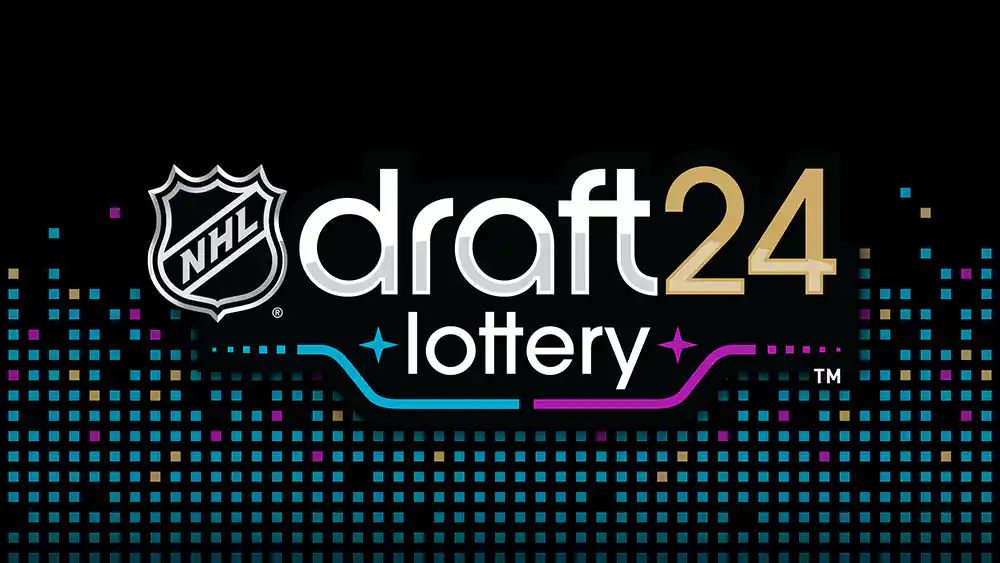Iginla stayed true to his St. Albert roots during rise to NHL legend
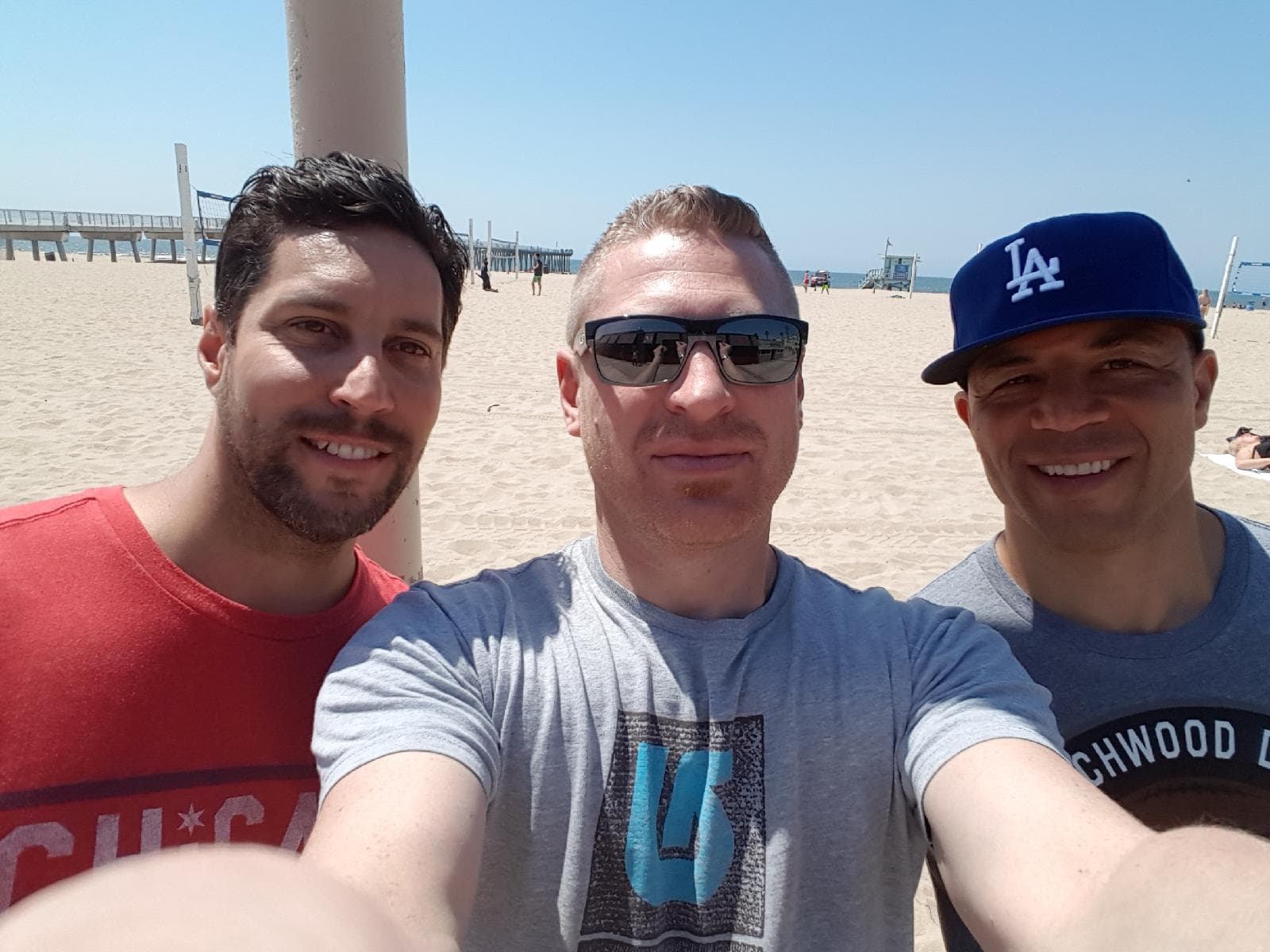
A few decades ago, a young Jarome Iginla was in a cab with one of his buddies, heading for a midnight skate at his hometown rink in St. Albert.
The driver recognized something special about their dedication and reminisced about a former passenger who turned his own work ethic into a pretty nice NHL career.
“Mark Messier used to do this, too. I took him to the rink a few times,” Iginla’s friend Mike Moran says, recalling the cabbie’s words from a ride they took as 13- or 14-year-olds.
Mike remembers the advice they got from the veteran driver, too. He encouraged them to stay in school.
“’You guys probably aren’t going to make the NHL, so it’s good to get an education.’ It was some good advice, but little did he know what Jarome would become,” Mike says with a laugh.
The celebration of what became of the former Flames captain takes place today as Jarome officially retires from the game he grew to love on that ice in St. Albert.
Now a Calgarian, Mike, his wife Carly and their two girls will be at the Saddledome. As will another good friend and childhood teammate, Bill Russell, making the trip from St. Albert with his wife, Nina, his two sons and daughter — joining Iginla’s family for what is sure to be an emotional tribute to all the 41-year-old has achieved in the sport he worked so hard to dominate.
Bill remembers one of the earliest signs of what Jarome could accomplish during a minor hockey tournament in Norwalk, California when they were about eight or nine years old. Iginla was dominating, as usual, but the local announcers on the TV broadcast during the final against a Colorado team in the mid-80s struggled to pronounce his name.
“They just couldn’t get Jarome’s last name right,” says Bill, offering up a few of the incorrect versions he remembers from the tape. “They probably took five cracks at it. It’s really not that difficult if you sound it out but I don’t think they ever said Iginla.
“But they did say that if he continues to play this way, he’s going to make a name for himself. So I think that was almost like a little bit of foreshadowing.”
Make a name for himself he did, dressing for 1,554 regular season NHL contests, netting 625 goals and 675 assists for an even 1,300 points. He added 37 goals and 68 points in 81 playoff games in eight appearances with three different teams — highlighted by the trip to Game 7 of the Stanley Cup Final with the Flames against the Tampa Bay Lightning in 2004.
Along the way, he earned a pair of Maurice Richard Trophy wins, an Art Ross, the Ted Lindsay Award, Mark Messier NHL Leadership Award, and won a pair of Olympic gold medals for Canada, setting up Sidney Crosby in overtime against the U.S. at the 2010 Games in Vancouver.
Mike and Bill have been around for many an NHL milestone, starting with draft day in Edmonton in 1995. They watched from behind the net as Iginla scored his first NHL goal the next year against the Chicago Blackhawks’ Eddie Belfour in the 1996 playoffs.
Mike remembers Jarome’s 1,000th regular season contest in Florida in February of 2010, just before the Olympics, and his 500th goal in Calgary in January of 2012.
They made sure they were at his last game as a member of the Los Angeles Kings in Anaheim in 2017 — just in case it turned out to be his finale.
It did, thanks in part to hip surgery and a layoff that made it too difficult last season for any of the contenders to take a chance by adding the unrestricted free agent to their roster at the trade deadline.
But he leaves a surefire first ballot Hall of Fame career in the rearview. His legacy off the ice has been just as impressive, from the many charitable efforts he’s made to causes like KidSport and the Alberta Children’s Hospital, to the way he treated everybody he crossed paths with along the way, from teammates and team staff members, to fans and members of the media.
Although his life changed significantly over two decades in the NHL, his values never did.
“As far as his roots, he hasn’t changed,” says Bill. “If you look around at a lot of guys who are Hall of Famers in any sport who have had long-term success, that’s probably something that’s consistent. They don’t change a lot. They stay grounded.
“It’s definitely a real tribute to his upbringing.”
After winning Olympic gold for the first time in Salt Lake City in 2002, Iginla called both of his friends. Bill was playing hockey in England. Mike was working on a pipeline in Northern B.C. Iginla was more interested and impressed by what they were up to than the fact he was wearing a heavy gold medal around his neck.
Even when they were youngsters, Mike says people gravitated toward the inherently shy Iginla because of his affable nature.
“He really, truly cares about people. He’s always asking questions; he’s curious about people’s lives and what they do and what’s going on in their lives. He’s not just making small talk when he talks to you,” Mike says. “He’s genuinely interested in the people he meets, and the fans.”
His devotion to the hockey faithful never wavered, no matter what city he was in.
There was an unwritten rule for reporters fortunate enough to ride on the team’s charter for road trips during the Darryl Sutter days that you had to beat Iginla to the bus or be in danger of being left behind.
It was never a problem, as Iginla spent plenty of time mingling with people before boarding.
At home games in Calgary, Mike and Bill spent plenty of time waiting to grab a post-game beverage with their buddy. He was the last guy out of the rink, soaking up every minute of the hockey environment before heading to his car.
Then absorbing a little more on his way out of the lot.
“The fans would be waiting there, and he’d pull up and sign autographs – we’re talking 11 o’clock at night,” Mike says. “Whether they’d win or lose, he’d stick around. And not just for two or three autographs, he’d stick around for five minutes and sign all 20 autographs.”
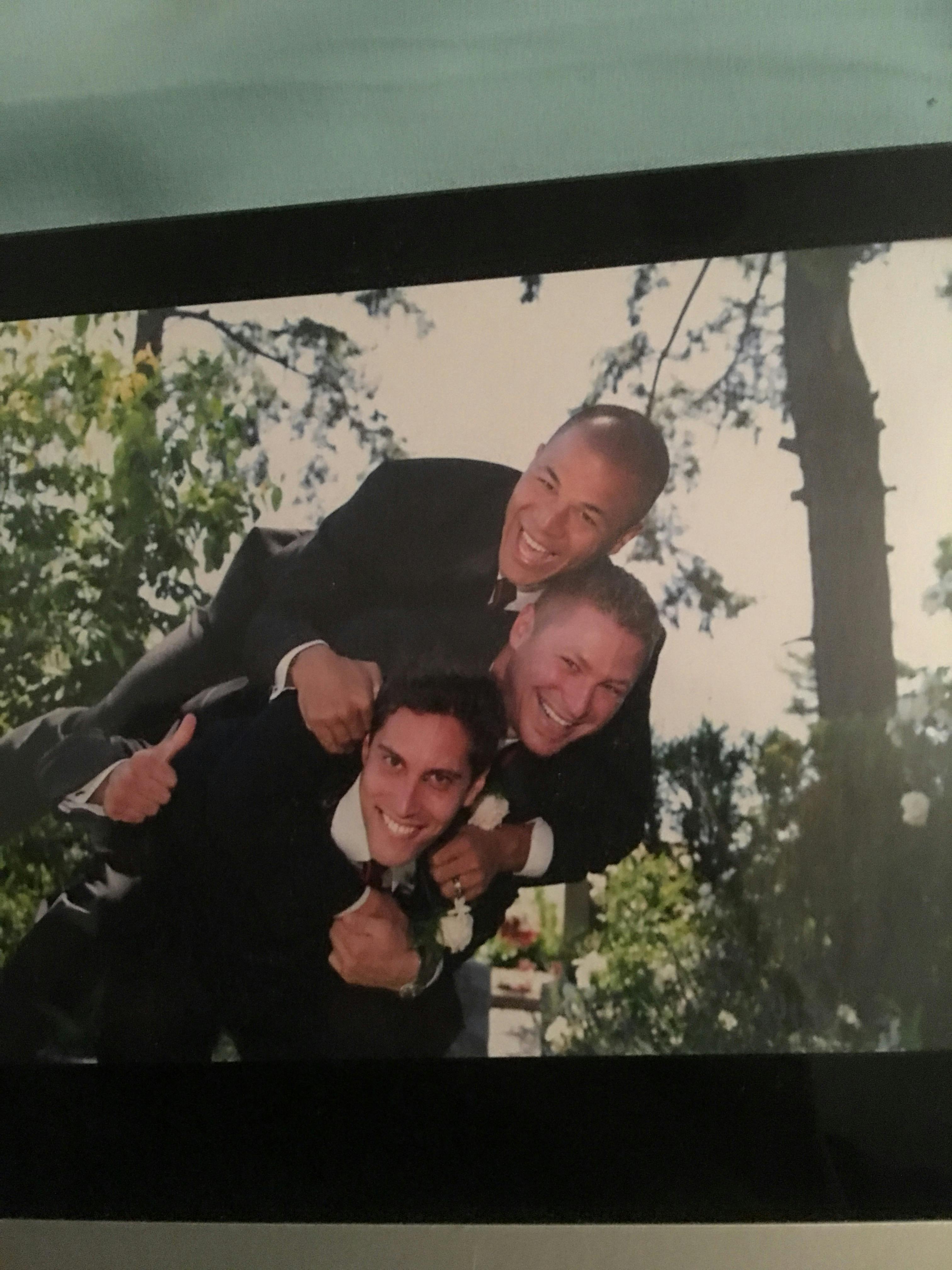
From Bill’s wedding … they all have these shots from their weddings with the groom on the bottom in each one.
The ultimate competitor
Back when Iginla was the autograph seeker, there were signs of his separation from his peers on the ice.
As a nine-year-old novice, he had the ability to hit the top corner with a slapshot from just inside the blueline, when none of the others could even get the puck off the ice consistently.
“There was a little bit of a flutter to it but it was still top corner,” Mike laughs.
His hair — yes, he had hair as a kid — was covered by a red Cooper XL7 helmet that would have earned him plenty of attention even without his obvious skills.
“He definitely stood out,” Mike says. “I even ended up buying one because I thought maybe it would help me play better.”
It wasn’t the gear, though, it was his work ethic and competitive nature that set him apart even in those days.
“He’d always try and push me and get me to work harder. I’d always say, ‘Well you’re blessed with a God-given talent,’” Mike says. “He doesn’t believe in that at all. He believes it’s all hard work. He’s kind of convinced me now.”
Bill is quick to agree, watching as Iginla put in time at gyms, boxing clubs, trying everything from road cycling to Pilates and yoga as he changed his training program time after time to develop new skills.
“He worked harder than anyone else. He wanted it more than anyone else,” says Bill. “As the game started changing a bit later in his career, he changed the way that he would train. He changed his weight. He changed with the game and gave himself the best opportunity to succeed. That was key.
“He was really good at everything, but he never talked about it and it was never good enough. There’s always a higher level to reach. I think that’s a big part of it, he was never satisfied.”
His competitive nature was the driving force behind his work ethic. He hated losing, whether it was playing tennis or badminton, competing in the high jump or sprinting in track and field, on the ball diamond with Bill during the summer months as an all-star baseball player, on the basketball courts, at the bowling lanes, a card table, playing trivia or just engaging in a friendly debate.
His wrestling matches with his friends, and later some of his NHL teammates, were epic — often leading to holes in hotel room walls or scolding from coaches who caught on to the matches taking place in secret in the bus bathrooms.
“He hated to lose,” says Bill. “If he loses, it’s double or nothing. If he loses again, it’s double that. He’d continue to say double or nothing until he won — but he was getting the better of us most of the time. He’s the absolute ultimate competitor.”
Mike found the only way to deal with it was to go out on top and use Jarome’s own words against him in battle.
“He’d beat me nine times out of 10 and he’d chirp me a little bit and say that you’re only as good as your last performance, so any time I’d beat him, whether it was the first game or the last game, I’d shut it down right away,” he says.
“He’d beg me to play to play again and I’d say, ‘No, you’re only good as your last performance,’ because I knew I wasn’t going to win again.”
Teammates as kids, Bill found himself playing against Jarome in the junior ranks when Iginla was a member of the Kamloops Blazers and he was a goalie with the Swift Current Broncos.
Things didn’t fall in Bill’s favour.
“We didn’t do so well. They had a pretty good team,” he says of the stacked Memorial Cup-winning Blazers teams.
Even the relationship with his wife, Kara, began with a challenge Iginla created for himself when he told his friends he was going to ask her to dance at a junior high Halloween dance as a 12-year-old. They’ve been joined at the hip ever since.
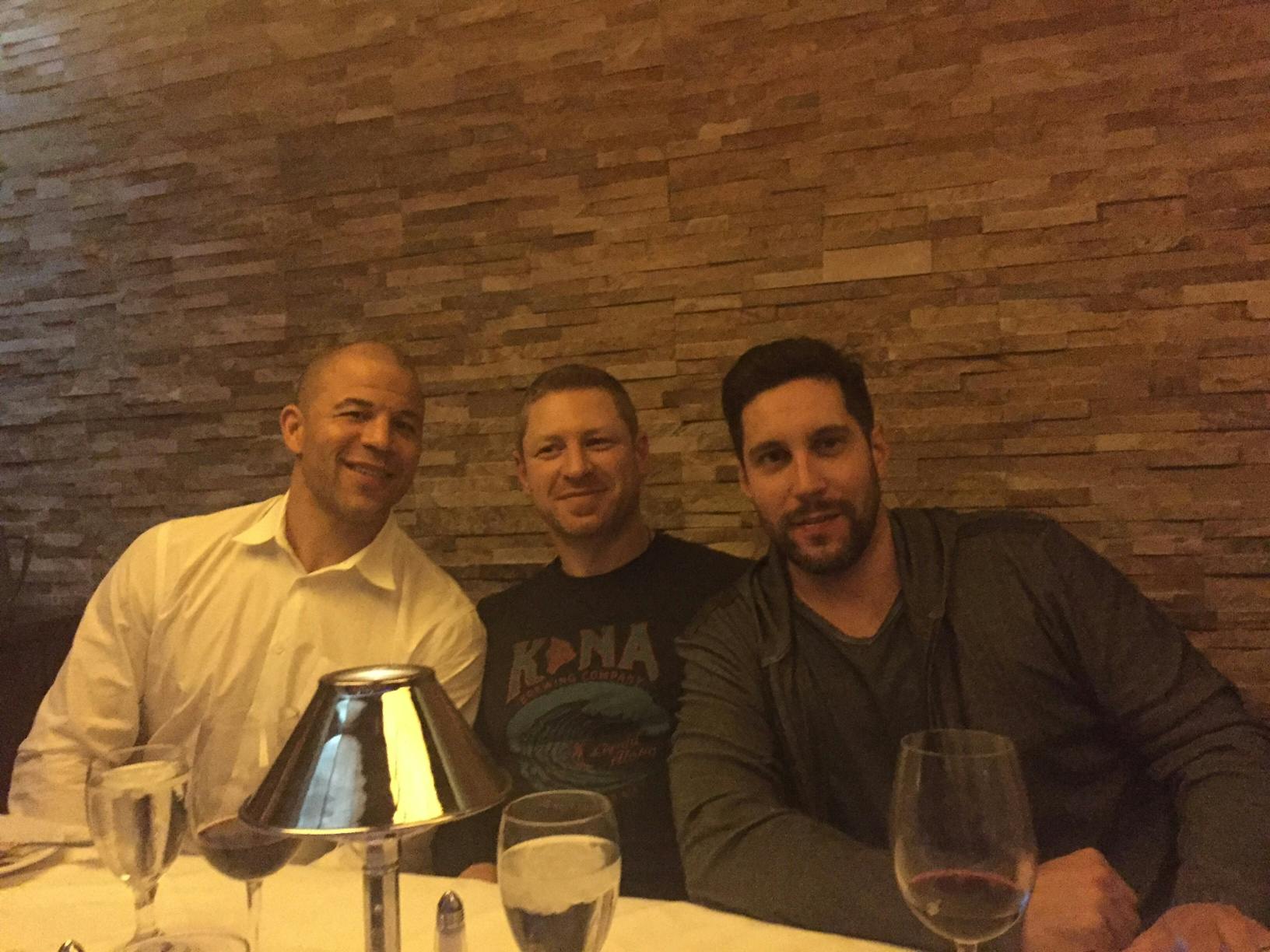
A dinner from a couple of years ago (Jarome, Mike, Bill).
Iginla isn’t great at everything after all
Although he often found himself as a captain in his second year at every level of hockey, Iginla was never a vocal leader. He preferred to lead by example.
That was true in the NHL as well, where he let his play do most of the talking.
And when he chose to engage in chatter, it was often on the ice in the form of trash talk — an area Iginla has always been relatively underrated because of his nice-guy image.
He was proud as a young player when he told Tie Domi to “Shove his 50 career goals” where the sun doesn’t shine after the veteran goon harassed him for a couple of periods.
Things didn’t go as well when he tried to chirp Chris Chelios as a member of the Chicago Blackhawks.
Mike got to hear the story when he met Chelios in Las Vegas for a celebrity tournament years later. In the game between the Flames and Hawks, players were jawing at each other across the benches when Jarome chimed in with, “What have you ever won, Chelios?”
“He didn’t realize Chelios had won a Cup with Montreal,” Mike says with a laugh. “The guys were just giving it to him – even his own teammates.”
Hey you can’t be great at everything, right?
If there was anything that required athleticism that he wasn’t good at, agree his friends, it was swimming.
They remember it slightly differently, with one believing it was the waters of the Dominican Republic providing the backdrop, and the other remembering it as Cancun — but they both remember the Banana Boat that was being pulled behind a speed boat with the three of them hanging on for the ride.
For Jarome, it was more challenging.
“He gets bucked off and he’s just hanging on for dear life. One hand on the back of the banana boat and the other bouncing off the water,” says Bill. “He finally lets go and he’s in the water and we’re laughing, ‘Look at this, an Olympic gold medallist and he can’t hang onto the back of a banana boat.’
“Any chance we get for a little shot, we’ve got to get it in, because it doesn’t come often.”
A retired Iginla will have more time to practice that now at his summer place in Kelowna, not having to worry about preparing for the next season as the summer winds down.
“It’s a sad day in hockey for sure but I’m going to look at it more as a celebration of his career,” Mike says. “It was amazing to watch one of your best friends rise like that — win gold medals and go to Game 7s and win scoring championships. I’m extremely proud of him.”
That sentiment is echoed by Bill.
“It’s an unbelievable career. I’m so happy for him. Super proud,” he says. “It’s rubbed off on me in positive ways and made me a better person over all those years, no question.”
And you can bet that whatever comes next for Iginla after some time spent as a dedicated coach for his own family of hockey players, Mike and Bill — who each have one of the three game-worn jerseys from Jarome’s 1,000th game — will be there.
“We’ll be there for the jersey raising whenever that day comes,” Bill says. “Then hopefully we’ll be in Toronto for the Hockey Hall of Fame induction as well.”
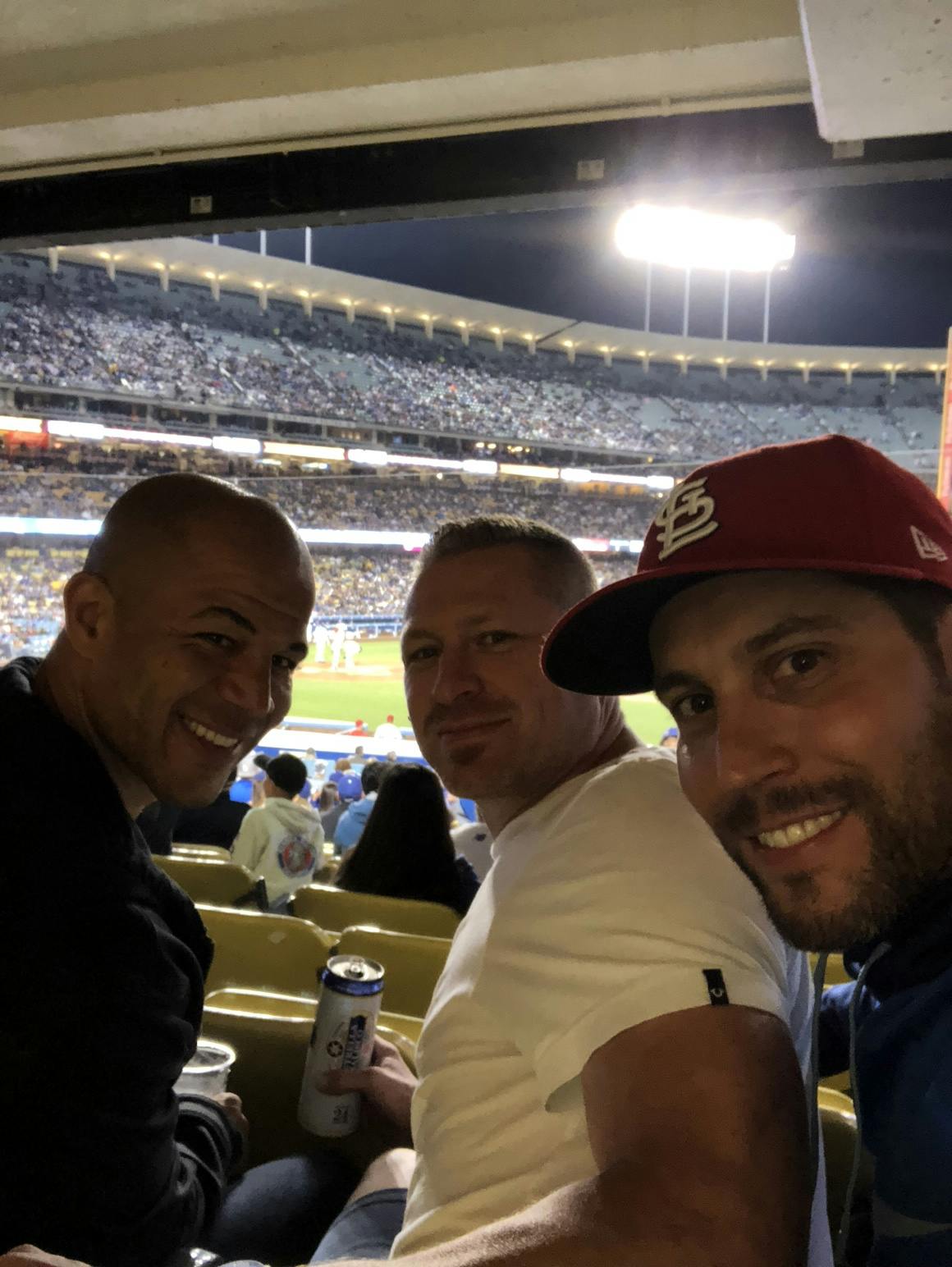
A recent baseball game (Jarome, Mike, Bill).
Recent articles from Steve Macfarlane





